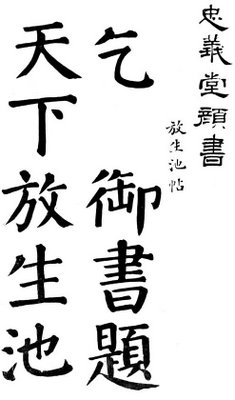
If you are one of my regular readers, you know that I written several times about the importance of children (and adults) learning more than one language. I've also tried to stress that children (and adults) should learn an Asian language (such as Chinese, Japanese, Korean and Arabic) in addition to the more popular European languages that many Americans learn.
Well, today, there is some good news on this topic. In the article, Mandarin Makes Inroads in U.S. Schools, the Washington Post reported that a number of school districts around the United States have launched Mandarin programs, including districts in the cities of Boston, Chicago, Houston, Philadelphia, and Portland (OR). Some excerpts from the article:
High schools across the country were asked by the College Board's World Language Initiative whether they would consider adding Advanced Placement courses in Italian, Russian, Japanese and Chinese -- and the organization was amazed at the results, said Tom Matts, the initiative's director.
Fifty schools in the 2003 survey said they would offer the Russian option, about 175 said Japanese, and 240 said Italian.
"And for Chinese, it was 2,400, 10 times the number of any of the other three," Matts said. "We had no idea there was such an incredible interest out there. Of all the new AP courses, certainly Chinese shows the most promise for growth."
In the Senate, the Foreign Relations Committee is considering a proposal to allocate $1.3 billion to boost classes on Chinese language and culture in public schools, and China, too, is doing its part, said Michael Levine, education director at the Asia Society in New York City. China's education ministry has formed partnerships with states including Kentucky and Kansas, as well as Brazil, Australia and Britain, to boost teacher exchanges and training.
The Oregon program, though, is the first in the country to track students from kindergarten to college. The school district and the University of Oregon won a $700,000 grant from the Defense Department for the program this fall.
The idea is for students to move from the Portland school system to the university, where scholarships will be offered to students who will take a standard college curriculum taught largely in Chinese. Students can also opt to spend their junior year abroad, studying at Nanjing University in China.
...
It has long been accepted that the younger children are, the easier it is to introduce them to a second language, Patterson said.
In September, most of Yen's 24 students could not speak a word of Mandarin, one of the most difficult languages to learn. But three months later, the students were singing songs in Mandarin, laboriously printing Chinese characters and following Yen's instructions, delivered in Mandarin, with no need for any English translation.
...
By the time they get to fourth grade, students are relatively fluent. Lily Rappaport, 9, said she sometimes dreams in Mandarin, after five years in the program.
...
In the higher grade levels, students at Woodstock take not just language-learning classes but also math and science courses that are taught in Mandarin.
...
"There are great big multiples of kids who are studying the European languages, but when we think about our economy, and the new markets we are expanding into, it is time to recalibrate some of our attention," Levine said.
[Special thanks to Keith Welch at ShuFa West for the use of the Chinese calligraphy example above.]
Update: In looking at a few other blogs that have commented on this same Washington Post article, I came across an interesting comment over at dogmas of the quiet past. He wrote: "Mandarin is finally making in-roads in America’s educational system. In some places, they are teaching entire standard courses (i.e. reading, math, etc.) in Mandarin. Note that all of the hoopla surrounding the gall some school districts have to teach courses in Spanish is not surrounding doing so in Mandarin. Gee, I wonder why."
Heh. Sarcasm noted.
No comments:
Post a Comment